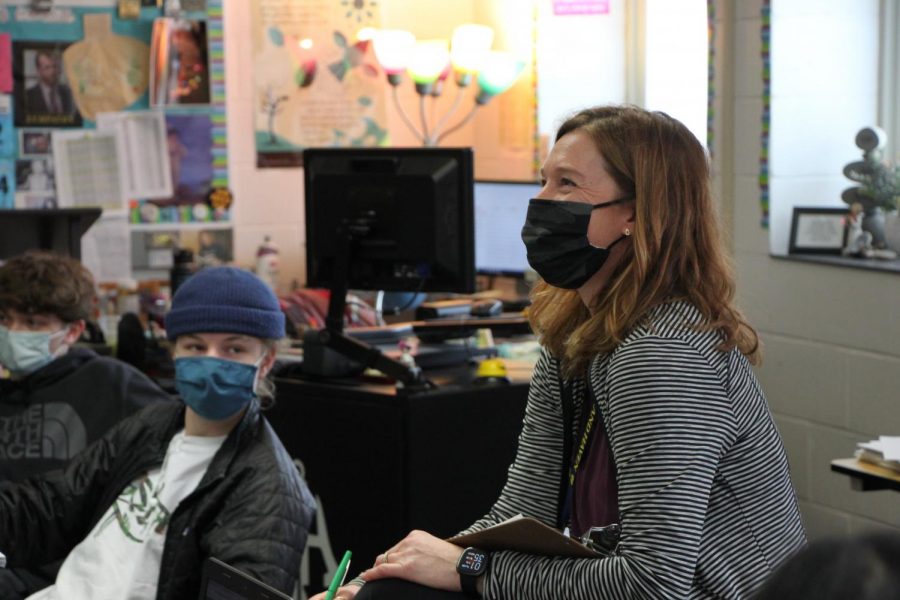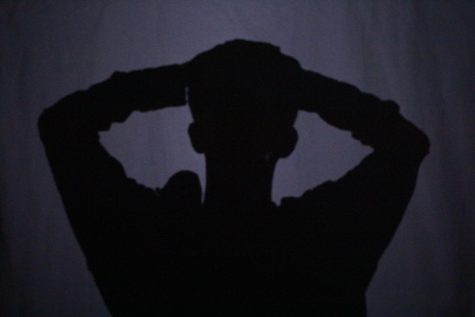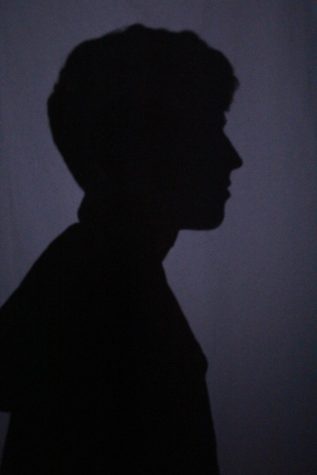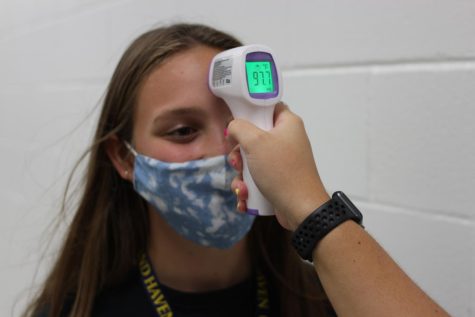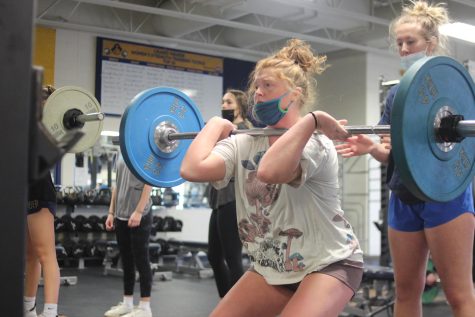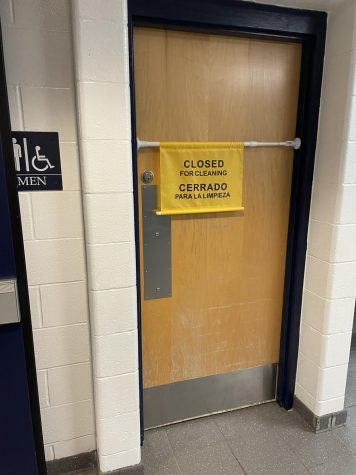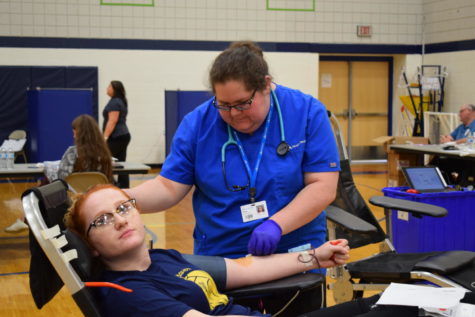Teachers John Josephson, Angel Dean and social worker Katie Havey work to mend mental health following periods of virtual learning
ALL SMILES: English teacher Angel Dean lightens the mood during a round table discussion in order to create a welcoming environment that provokes thoughtful discussions. “Kids want to be seen, they want to be understood and they want to be cared about and you can’t get them to do the things you want them to do until they know that they’re safe and cared about,” Dean said.
April 1, 2021
You lost interest in the lesson five minutes in. Your camera and mic are clicked off, you’re still laying in bed and you haven’t changed out of the clothes you slept in. Although you’re well aware there will be some sort of assignment posted later, you also know the internet probably has the answers.
All your motivation for school is completely gone.
You’re currently switching between mindlessly scrolling through your phone, planning what you’ll make for breakfast and resting your eyes as you wait for class to be done so you can get on with the day.
To add to it, you have no connection with the teacher and therefore feel very little guilt in doing barely adequate work. They might know your name but all you know about them is that they seem to talk forever.
You have every excuse not to listen.
Despite this, you decide to give the lesson a chance and pay attention every couple minutes. This proves pointless though. It takes you about five seconds to realize you’ve no clue what is going on and were enjoying yourself far more not listening. Finding no compelling reason to continue, you stop.
Unfortunately, stories like this have become increasingly common throughout the past year. The global pandemic has disrupted learning and created rifts between teachers and students.
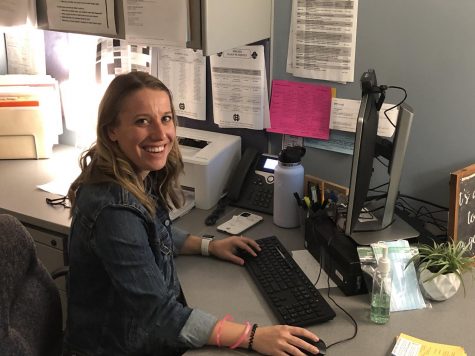
“There’s something about physically being in the same space together talking that builds connection instead of looking at each other over the screen, it doesn’t physically have the same comfort level,” social worker Katie Havey said.
On top of looking through a computer to attend school, students were in an environment not best suited for learning. The home setting is normally a relaxed, work-free zone. Trying to do school in these conditions can subconsciously mess with your brain and make you less motivated.
“We are creatures of habit, we are conditioned based on our environments,” Havey said. “Your mind expects certain things and shifts accordingly.”
Because of this change in mindset, social studies teacher John Josephson, who is known for connecting with students, found it challenging to teach virtually. He says many kids seemed disconnected and nonengaged.
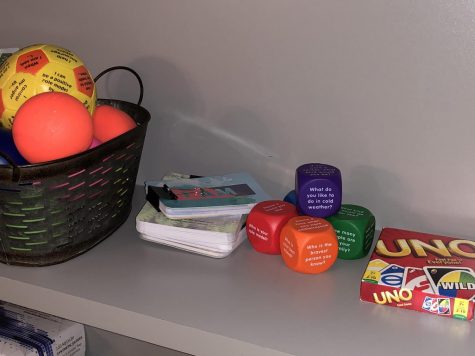
“I could see it in their faces,” Josephson said. “When they were at home I just knew something was up but you can’t just pull them aside or see them in the hallway and say, ‘Hey is everything fine?’ It’s very challenging to do in the online format. I was more concerned about the person than the academic stuff.”
In a normal, face-to-face school experience, Josephson works breaks into the 90-minute blocks to help students release some of that stress. He says it encourages them to simply be teenagers for a bit.
Once, he even took his class outside and let them launch as many snowballs as possible at him for 60 seconds.
“It’s important to have those types of activities,” Josephson said. “Even if it’s not something that’s academically focused it allows for a little bit of community building in the classroom.”
Another way he creates community is by opening himself up to students. Josephson allows them to ask questions not only about the material but about his personal life, this builds bonds of mutual trust.
“When we as teachers can show that we’re normal people and that we’ve gone through things as well and we know the stress and when we show that empathy and understanding that really helps,” Josephson said. “The students don’t care to know until they know you care.”
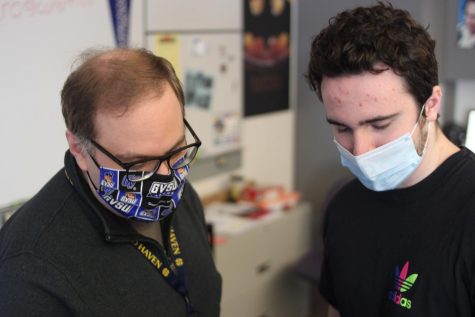
Havey says students not being able to develop and strengthen these connections with teachers in the past year is largely responsible for online school being so difficult.
Alongside fellow social workers, she has met with many kids experiencing negative effects of virtual learning.
Havey helps by allowing students to process how they feel by talking through their problems and experiences. Oftentimes, with some guidance, this leads to students realizing what they need to do to help their situation.
“It’s all about what they believe to be the problem and not what I perceive to be the problem,” Havey said.
These problems may stem from four main factors that impact mental health positively or negatively: sleep, nutrition, exercise and substances.
Variations in any of these factors can cause issues.
 One recent, major change due to COVID-19 has been completely different schedules. For many students, this has affected at least three of the big four factors, which in turn affects mental health.
One recent, major change due to COVID-19 has been completely different schedules. For many students, this has affected at least three of the big four factors, which in turn affects mental health.
It’s not all bad though. Teachers throughout the building have taken it upon themselves to do their part in maintaining clear lines of communication, predictable schedules and safe, healthy, trusting relationships with students.
Josephson does this and just like in his room, students in english teacher Angel Dean’s class feel safe and cared about.
She makes it her priority to pay attention to every student in her room, notice when they are off and then coach them through difficult times. Sometimes just a soft palm on the shoulder and the comforting words of ‘I’m here for you,’ is all it takes for students to open up to her.
“There’s a lot weighing on [students] and it can be difficult to see your strength and have clarity that this is temporary and that everything’s going to be okay,” Dean said. “You have to sometimes be explicitly told so it’s a part of my plan to establish that in my classroom and if I’m looking for the good that’s exactly what I’ll see and then [students] will see it and they’ll feel hopeful and things will continue to get better and better.”
Not only does she put a large emphasis on emotional health, Dean also stresses the importance of quality work and effort in her classroom. She helps students be successful in conquering both their mental health and education.
“They know I believe in them, they know I respect them and I hold them to a certain standard and that always makes people want to meet your standard,” Dean said.
Despite the adversity that COVID-19 has presented recently, Dean has faith that improvement will prosper through the challenges. She believes this virus may have been the exact wake-up call society needed.
“I’m hopeful that we’ll learn some things and we’ll be able to apply some things and be able to balance our lives and that as a result of that we’ll see kids’ mental health improving,” Dean said.

